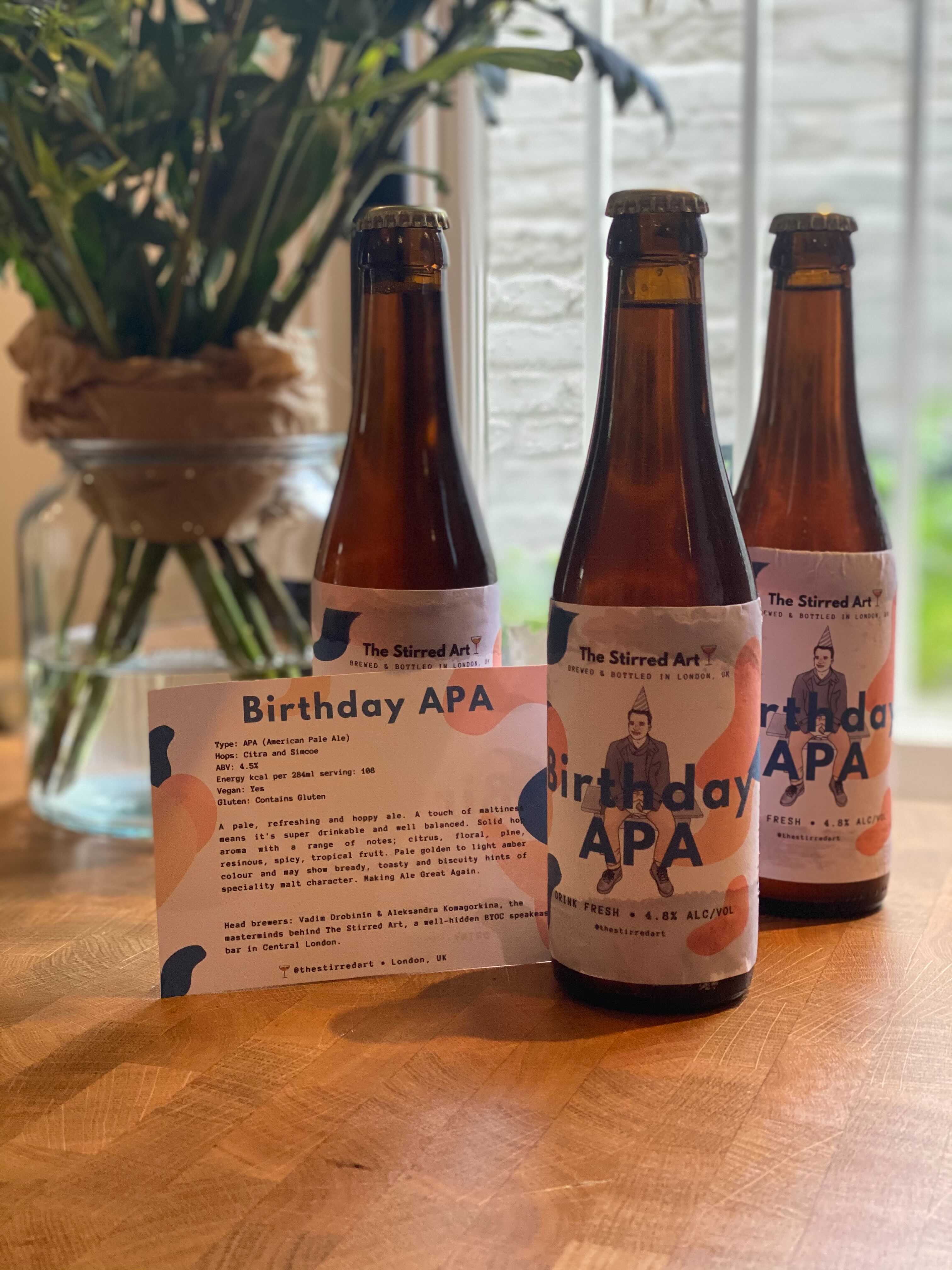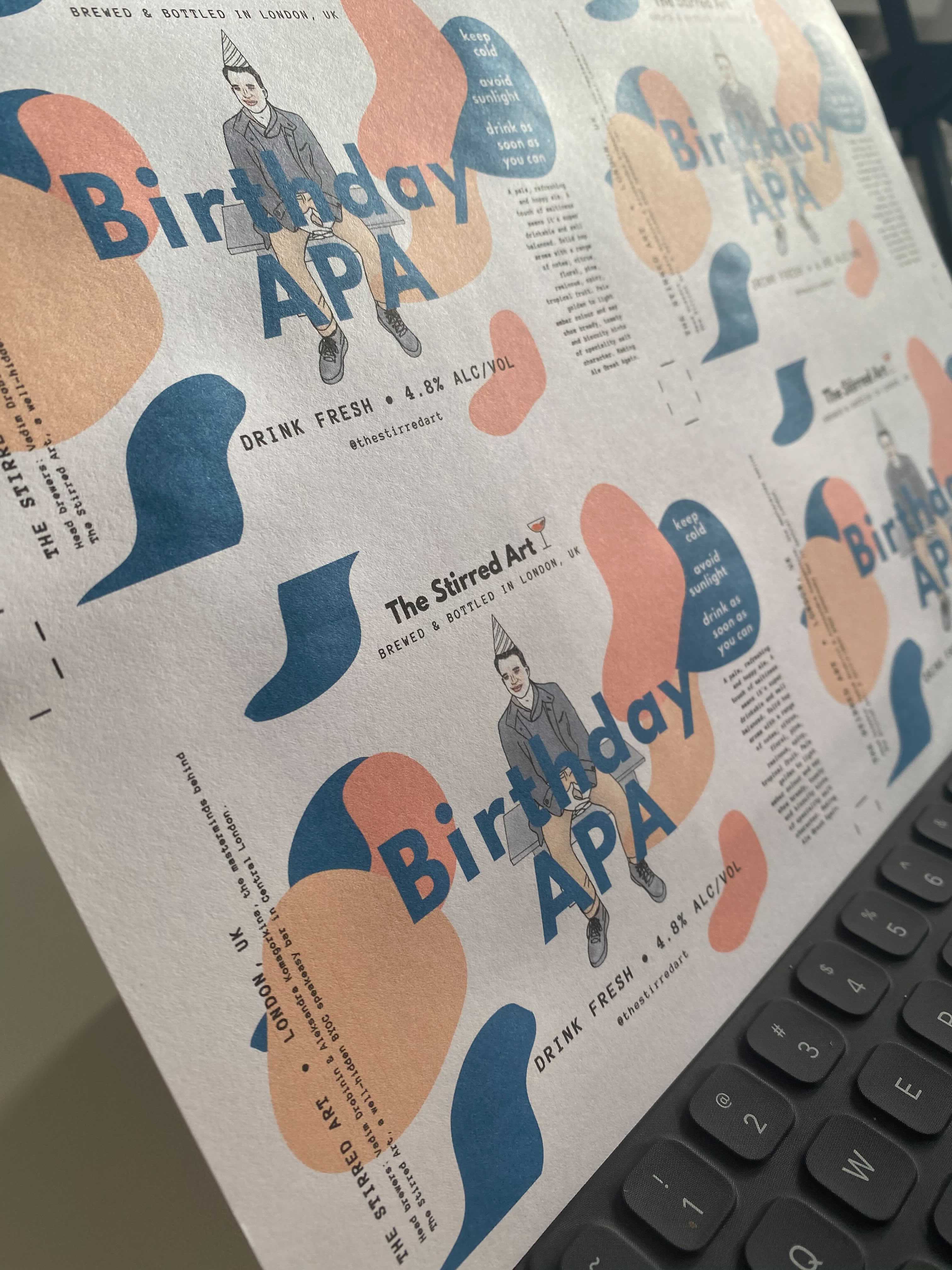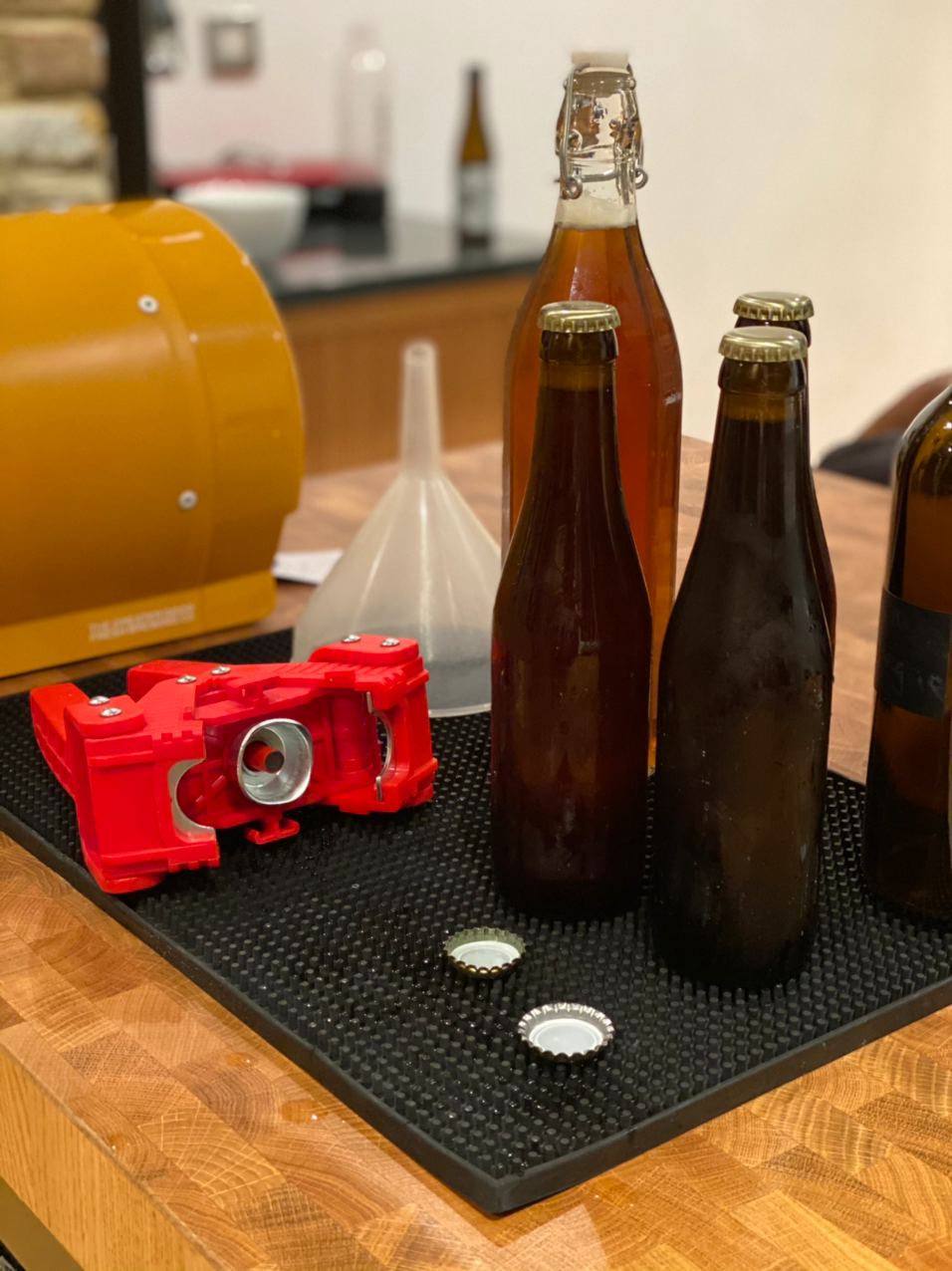Tuesday Triage #20
- TUESDAY TRIAGE #20 by Vadim Drobinin
- On building from scratch
- Things I enjoyed reading
- 1. The Purpose Of Writing by @SvenSchnieders
- 2. Write Code Like You Write a Recipe by f6u
- 3. New York nightlife never stopped. It just moved underground by Brock Colyar
- 4. How I Made a Self-Quoting Tweet by @TheOisinMoran
- 5. Drunks and democrats by Vaughn Scribner
- 6. The most unusual murder weapons in crime fiction by Lynne Truss
- 7. How My Paid Community Made $5K in Its First Week by @monicalent
- 8. Your Move, iPad by @bhansmeyer
- 9. How Rainbow Tables work by Kestas
- 10. Quake III Arena, k3s and a Raspberry Pi by @nosceon
- Things I didn't know last Tuesday
- 1. Interrobang
- 2. Earth got new minimoon
- 3. Teslaquila
- 4. Independance Day Soundtrack
- 5. By the bye
- 6. Two spaces after period
- 7. Brussels sprouts grown today taste better than 30 years ago
- 8. Treaty of Friendship
- 9. Shrimp cocktail started as a drink
- 10. Milk is used to stick labels on bottles
- Book of the week
- Thank you and see you in a week!
TUESDAY TRIAGE #20
by Vadim Drobinin ¶
Your weekly crème de la crème of the Internet is here!
01.12.2020 (read in browser)
On building from scratch ¶
One of the most rewarding feelings is to build something from scratch; sometimes it doesn't even need to work as expected to be rewarding, it's the journey that matters.
Last time I've mentioned an endevour of ours, the batch of home-brewed beer.
This week we went even further to send a Birthday gift for a friend, and decided to bottle and label this beer properly.

In the world where one has lots of fresh beer in a keg, labels, and clean bottles, it sounds very easy.
It is not.
Bottling beer involves multiple tough decisions: from designing labels and finding a proper size and paper thickness to print them (Sasha did a great job!)...

... to pouring it into bottles with as less foam as possible, to removing oxygen from bottles with CO2, to putting crown caps on top, to gluing labels.

The latter apparently is not meant to be done by using PVA. There is a better way, and I will share it with you in the very end of "Things I learned" section.
Without further ado,
Things I enjoyed reading ¶
1. The Purpose Of Writing by @SvenSchnieders ¶
Very well put collection of thoughts on the purpose of writing.
Do not compare yourself to the classics; they are dead and cannot solve our problems for us. If you need confidence, compare yourself to contemporary intellectuals, and you will see that society needs all the help it can get. Remember, “in the land of the blind, the one-eyed man is king,” and one thing is certain: there are very few two-eyed men left.
Also some classics couldn't solve any problems even while being alive (won't be pointing fingers this time, but you get it).
2. Write Code Like You Write a Recipe by f6u ¶
These days I do enjoy finding similarities between different things out there. Cocktails and teaching aside, cooking and coding might be on the top of the list as well, and here the author does a great job at visually explaining how concepts we are so used to in cooking (or coding) do not make any sense (or do make a lot) in coding (or cooking).
As it tends to do, time continues to move on. The project and code in it eventually becomes legacy code (aka, someone else's problem to maintain).
One day, the business drudges up that old automated cookie creation idea and requests that it handles a new task - "instead of just cooking peanut butter cookies, it'd be great if the cookie system could handle oatmeal raisin as well!".
3. New York nightlife never stopped. It just moved underground by Brock Colyar ¶
If the previous year was full of flights and conferences and trips for me, this one might as well end up with a fear of closed spaces with plenty of people. However, there are underground clubs even in these unprecedented times, and this post reads like a true horror story for me.
Unofficial security people keep an eye on the entrance. At the back of the room, two women watch over a bar fit for a college basement party: two card tables, an empty White Claw box holding tips, and an assortment of well-quality liquor, soda, and juice mixers. Someone inexplicably serves me a vodka-and-orange-juice. Someone else tells me the bar is in the corner so it can be dismantled covertly should the police arrive.
(and as the heaven on the Earth for some, I am pretty sure)
4. How I Made a Self-Quoting Tweet by @TheOisinMoran ¶
To explain recursion one needs to explain recursion.
And yet despite being such a common (and known!) problem, race conditions and circular dependencies never go away.
One other weird idea would be to tweet lots of IDs with timestamps from a good bit in the future—maybe a month or a year from now—and see the reactions when people realise they were quote-tweeted a year before they actually sent the tweet! Heck, why limit ourselves to such short-termism? There's enough room in these timestamps for almost 70 years of milliseconds. This means we could actually quote-tweet someone before they've even been born! Now that would be something.
5. Drunks and democrats by Vaughn Scribner ¶
I really enjoyed this dive into American history, democrats, and taverns (not to mention an Alexander Hamilton who has nothing to do with the Alexander Hamilton).
By the mid-18th century, America hosted a diverse set of taverns for a diverse set of customers. But assortment hardly bred homogeneity. An urban gentleman might escape to an exclusive ‘City Tavern’, where he could sip fine wines, peruse the day’s news, transact a business deal or match wits in a private club. The colonies’ blossoming middle classes could buy and sell wares, view exotic creatures such as camels and leopards or listen to a travelling lecture in urban and rural taverns, while lower-class colonists enjoyed access to a variety of taverns where they could down a pint, obtain a loan or find a bed for the night.
6. The most unusual murder weapons in crime fiction by Lynne Truss ¶
A solid chunk of my childhood has been spent reading random detective novels from libraries (not the likes of Sir Arthur Ignatius Conan Doyle, nope, just mediocre Russian writers, as I already finished Sherlock Holmes by then).
I was a child, I was tremendously bored, and we didn't have that many bookshops out there.
The problem with most of these books was that after the first dozen or so I could easily predict the grand finalé and couldn't enjoy the rest of the book.
Great to see that some others were way more creative:
This story has stuck in the minds of millions, it seems, and is universally recognized from the description, “the one with the leg of lamb”. When I executed a very unscientific poll among friends, asking them to name the most unlikely murder weapons they could remember, every single person said, “Do you know the one with the leg of lamb?” In the story, a spurned woman takes a heavy, hard leg of lamb from the freezer, brains her cheating husband with it, and then pops it into the oven.
7. How My Paid Community Made $5K in Its First Week by @monicalent ¶
These kinds of stories are very inspiring. Not only because they show someone's journey, which might be quite dangerous given the survivorship bias, but because they bring a different perspective into things one builds.
Many people had multiple touchpoints: subscriber and on the waitlist, or followed me on twitter and subscriber to the newsletter. However, only 31% of new members follow me on Twitter. I’m not offended, to the contrary — I prefer it. Now I know that if I want to grow the community, the best thing I can do is have more of the right people join the newsletter first.
8. Your Move, iPad by @bhansmeyer ¶
Despite using the iPad Pro mostly to re-watch an occasional episode of Simpsons, I did try to rely on it as the main machine and was disappointed way less than I expected.
It’s clear that Apple wants the iPad Pro to be a device that a wide variety of professionals can use to get work done. And since so many people use web apps for their work, the introduction of “desktop” Safari for iPad was an important step toward that goal. The Magic Keyboard and trackpad was another step.
Quite excited to see its next generation (also to find a reason to get the second one).
9. How Rainbow Tables work by Kestas ¶
If only this post was around when I did my exams at the first year of university.
The key to understanding rainbow tables is understanding the (unhelpfully named) reduction function. A hash function maps plaintexts to hashes, the reduction function maps hashes to plaintexts. It's important to note that it does the reverse of a hash function (mapping hashes to plaintexts), but it is /not/ an inverse hash function
I'd suffer anyway but probably way less: a great explanation of magic behind rainbow tables.
10. Quake III Arena, k3s and a Raspberry Pi by @nosceon ¶
Seems like I should come up with a new section to the newsletter and share my (never implemented) weekend DIY plans:
Finally, take the example yaml file from the QuakeKube GitHub repository and make the appropriate changes. The service should be updated to a LoadBalancer instead of type NodePort, and of course you can change the configuration to tweak the game preferences to your own needs.
Quake 3 was (and is) one of two games I regularly play; the other one is Heroes of Might and Magic 3.
Back then I'd save up money, queue to a computer club and spend from half an hour to eight hours playing on pretty much the same maps, again and again.
And then I'd come home, and read automatically translated posts from FIDO on various tricks to get better at the game.
And then I'd come back and play again.
I guess with a Raspberry Pi I can finally install it on my fridge. Such a time to be alive.
Things I didn't know last Tuesday ¶
1. Interrobang ¶
My only hope is that subscribers of this newsletter are grown adults and won't be using this character in their written texts.
The interrobang (/ɪnˈtɛrəbæŋ/) ... is an unconventional punctuation mark ... intended to combine the functions of the question mark... and the exclamation mark..., known in the jargon of printers and programmers as a "bang". The glyph is a superimposition of these two marks: ‽.
2. Earth got new minimoon ¶
Not the best time, 2020. Not the best time.
For only the second time in history, astronomers have discovered a new, natural-origin, minimoon orbiting the Earth.
3. Teslaquila ¶
Elon Musk made his own tequila recently, with a very fancy bottle:

He wanted to name it Teslaquila but apparently it wasn't approved:
The word “tequila” is a designation of origin; it means the rights of using this word belong only to the tequila agribusiness. That also means no one can register the word as their property.
So words similar to "tequila" can't be turned into brands either.
4. Independance Day Soundtrack ¶
On July 4, millions of Americans celebrate Independence Day by watching fireworks synced to [mostly patriotic] music.
Usually this music includes Tchaikovsky’s "1812 Overture", a very specific story about Russia’s defeat of Napoleon’s invading army, which starts with a traditional Russian Orthodox hymn and ends with the Imperial national anthem, “God Save the Czar.”
In 1971, Woody Allen used it in the Film “Bananas,” as soundtrack to a fantasy love scene. And in 1974, the Boston Pops added cannons, church bells and fireworks to draw crowds to their Independence Day concert. It was such a success, the Pops made the "1812 Overture" a Fourth of July staple. Other orchestras followed suit, and a holiday tradition was born.
Hilarious.
5. By the bye ¶
This example left me, to put it succinctly, flabbergasted for a brief moment.
by the by or by the bye : INCIDENTALLY [defined as "by way of interjection or digression : by the way"]
I wonder if it will help me to up the game of interrupting folks in conversations.
6. Two spaces after period ¶
Back then people had to put two spaces after punctuation marks as typewriters had monospaced typesetting.
Here’s why: Back when we used typewriters, every character was given the exact same amount of space on the page. That meant the letter i was given the same amount of space as the letter m, even though it clearly didn’t need it. This is called monospaced typesetting and it’s, well, spacey. We needed that extra space between sentences to make it easier to see the beginning of new sentences.
These days quite a few still do that; usually one can easily assume they've learnt to type not on a computer.
Rarely, one encounters someone like me, with a typewriter next to the keyboard, and just thinks I am stupid and don't know thine grammar.
7. Brussels sprouts grown today taste better than 30 years ago ¶
Until very recently, Brussels sprouts were too bitter to enjoy.
This all started to change in the 1990s, and it began in the Netherlands, where Brussels sprouts have a simpler name: spruitjes. A Dutch scientist named Hans van Doorn, who worked at the seed and chemical company Novartis (the seed part is now called Syngenta), figured out exactly which chemical compounds in spruitjes made them bitter.
I must say, there is something soothing in Dutch scientists' fixing Brussel's problem.
8. Treaty of Friendship ¶
To the date, this is the oldest treaty in the world.
Relations were formalized with the Moroccan–American Treaty of Friendship negotiated by Thomas Barclay in Marrakesh, and signed by American diplomats in Europe, Thomas Jefferson, John Adams with Sultan Muhammad III in 1786.
All because Morocco was the first country to recognise the newly independent United States.
9. Shrimp cocktail started as a drink ¶
What started as an oyster cocktail in 1889 made a long way to today's breakfasts
Put half a dozen to a dozen small oysters into a goblet or beer glass, with enough of the liquor to cover them. Salt, pepper, catsup, a dash of Tobasco sauce, half a spoonful of Worcestershire, two or three spoonfuls of vinegar, and sometimes a pinch of horseradish. Stir it up with a spoon and drink it down. … The oyster cocktail is as much of an institution in San Francisco as the whisky cocktail is here.
10. Milk is used to stick labels on bottles ¶
Someone asked if milk could be used to glue beer labels on bottles in November 2006. Someone else said that it's one of the best ways to make sure the label is glued properly.
you just brush a very thin film of milk on the back of the label. I used a paper tower to just barely get it damp. It works fine, and it doesn't stink
Wish I found it at least one day earlier.
Book of the week ¶
Any narrative embodies the narrator, and hence a story told by someone is not meant to capture our hears as much as the stories we tell by ourselves. So why do we still enjoy reading then?
Joseph Campbell answers this perfectly in The Hero with a thousand faces:
The standard path of the mythological adventure of the hero is a magnification of the formula represented in the rites of passage: separation—initiation—return: which might be named the nuclear unit of the monomyth.
A hero ventures forth from the world of common day into a region of supernatural wonder: fabulous forces are there encountered and a decisive victory is won: the hero comes back from this mysterious adventure with the power to bestow boons on his fellow man.
The idea that stories written and stories not even started are but the same is powerful; it induces one's power to create without looking back at anything written prior, and yet multiplies the connection with fellow writers out there, as we all walk down the same road.
Methinks the idea of the monomyth could be taken even further, as it applies to nearly anything in day-to-day life. A simple walk to a grocery shop is built on separation, initiation, and return. Each stage has its own encounters and emotions. Each emotion drives a separate story.
And once you think about it, a user experience in an app is built upon the same concepts, from onboarding to activation to retaining after a month.
What's the best part to that thinking? A bug or a crash is a force of nature, something which stands on the hero's path to return. It is very natural and without crashes the hero won't pass their initiation.
Bear with me, in the next episode I will be selling this paragraph to complaining users.
Thank you and see you in a week! ¶
If you have any questions, or want to suggest a link for the next newsletter, please drop me a message on Twitter or reply to this email.
Cheers! 🍸